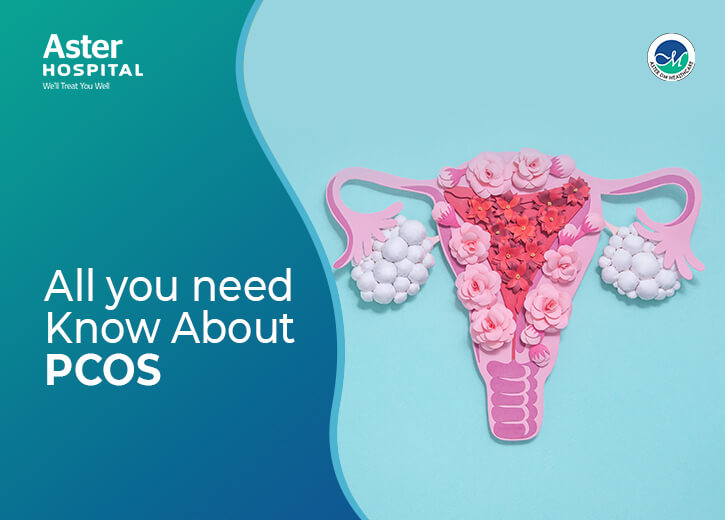The specific cause of PCOS is unknown. It is known that many women with PCOS also have insulin resistance, which can lead to higher levels of androgen in the body. Insulin levels may then build up, consequently leading to increased androgen secretion.Obesity can also increase insulin levels and make PCOS symptoms worse.
PCOS is estimated to run in families with about 14% of PCOS patients saying that a sibling or a mother/daughter is also a sufferer.
Early symptoms of PCOS:
PCOS is a hormone disorder that affects ovaries and can make it difficult to get pregnant and cause weight gain.
If you have the following symptoms, you should see your doctor:
– Irregular periods: Women with PCOS may experience irregular or absent periods due to the ovaries not making enough estrogen to stimulate the uterus lining to shed every month.
– Excess body and facial hair can be uncomfortable and can negatively affect self-esteem. It may require medical treatment. Excessive production of androgens is the main reason that causes the excess body and facial hair.
– Lack of ovulation or menstrual periods can be a sign of several different medical conditions, from PCOS to the use of certain medications.
– Weight gain or difficulty losing weight may occur as a result of hormonal changes.
How is PCOS treated?
The treatment plan for PCOS is often different depending on the patient. Factors like your age, the severity of symptoms, etc. will determine what you can do to improve your health. There are multiple options, for example, if you want to become pregnant or not in the future.
If you are planning a pregnancy:
A change of diet and more exercise will help you lose weight & reduce symptoms. This method can also help your body use insulin more efficiently and lower blood glucose levels. A diet and exercise regime may be enough to relieve potential infertility.
Medications to cause ovulation: it can help ovaries release eggs and cause ovulation but has potential risks.
If you are not planning to become pregnant, your treatment may include:
Birth control pills. This treatment is used as a contraceptive method and as a remedy for hormonal acne issues.
Diabetes medication helps reduce insulin resistance in PCOS sufferers. It may also help reduce androgen levels, slow hair growth and help you ovulate more regularly.
PCOS: Include these foods!
#PCOS treatments don’t always involve strenuous dieting. These foods, in moderation, will help you manage your symptoms.
Lean protein: Tuna, salmon, or sardines, are a great source of energy and helps stabilize blood sugar (make sure it’s fresh when consumed!)
Bananas: Potassium and B vitamins work to decrease the severity of acne breakouts due to increased testosterone.
Apples: An antioxidant called quercetin, helps regulate sugar levels that contribute to PCOS symptoms.
Berries : A good source of antioxidants, which helps prevent oxidative stress, which causes inflammation.
Cruciferous vegetables: Green leafy vegetables like brussels sprouts, broccoli, and cabbage are high in magnesium. Magnesium can help tackle insulin resistance which is common in people with PCOS.
Whole grains: Oats are a great source of fibre and can help to regulate appetite.
Choose healthy fats: Olive oil, avocado oil, coconut oil, and nut butter.
Janani Satchithanantham
Senior Clinical Dietician
Aster Al Qusais



